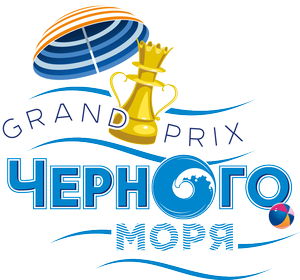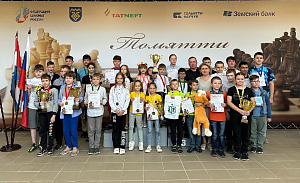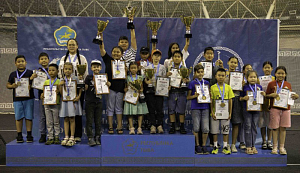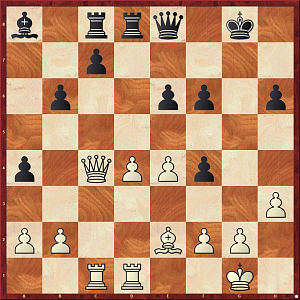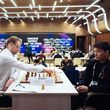Ethics Under Suspicion
Daniil Dubov pursues the subject of cheating
This part of the article seems the most important to me — it is dedicated to the symptoms of cheating, consideration of various pretexts for suspicion and ethics of discussing it. Surely, there area lot of difficult and debatable moments; I will note again that preventing cheating is much easier than proving it.
Let’s first mention that in such conversations we walk on thin ice: obviously, if person has not been caught red-handed, we cannot be 100% sure in his innocence (in his guiltiness, however, too). I will share my thoughts, but it will only concern moments that are more or less suspicious.
In the first part we will try to figure out the logic and the structure of suspicions themselves, and in second one we will talk about ways of expressing those suspicions.
Part I. Suspicions
I will start with a few things that usually seem fishy to people and figure out what exactly do they mean. For the last time I will mention that everything described below is solely my own view: undeniably, some may find my statements controversial, but it is not necessary for you to support them.
1) Quality of games
In my opinion, this is a cornerstone of all suspicions. If a person does not play well, I always find suspicions questionable: there might be a million of other explanations to having toilet breaks 40 times per game, coming to the game in a hat, or making any other weird action. It should not worth a lot of attention: if you lost a game, but had a winning position during it — I doubt it has anything to do with cheating…
In contrast, if a person plays excellently and makes no mistakes, it is a sign to look closer. Even if a candidate master acts very naturally, several brilliant gameswith best “computer” moves area unique phenomenon.
2) Result
This is one of the weakest arguments. It is possible to gain any amount of points and win any number of games whilst playing averagely. Luck factor is big in chess, and its role is immense — even if person got 9/9 and made a lot of mistakes, it doesn’t say anything.
3) Suspicious behaviour
There is a vast number of examples. Frequent toilet breaks, long absence from the game room, weird clothing, lack of emotions etc. Again: all those things seem secondary to me compared to the quality of moves. There might be a number of explanations to these suspicious behaviours — chess players are peculiar people in general.
4) Proven breach of rules during the game
Of course, this is a very strong argument. For example, in the infamous scandal involving Bibisara Assaubayeva, Elizaveta Solozhenkina’s testimony, the genuineness of which cannot be proved, is key to this story. All other chess-related ‘evidences’ by Evgeniy Solozhenkin, in my opinion, are very far-fetched, and without them he would have seemed to be in a stronger position. If such violation is proved, then this is enough reason for penalty. For example, phone conversation during the game is prohibited in any case and should always result in punishment, even if the conversation was not directly related to the game.
5) Weak opponent
Another pretty strong argument, but it only has powerin a long-term distance. Nearly anyone can play one brilliant game; it becomes suspicious only when there is a high percentage of such games. Judging by one game seems less logical than judging by 9, doesn’t it?
6) Post-game analysis / press conference
The quality of moves demonstrated after the game is not relevant at all — people become tired, forget calculated lines; moreover, many people are able to make a few strong moves just by accident.
7) Weak moves during rapid and (especially!) blitz games
It makes sense, but many people are simply worse at those games. This argument becomes a strong one only during blitz games: rather than looking for severe blunders (everyone experiences those during blitz), you should look for glaring positioning mistakes, which say a lot about general understanding of chess.
8) Direct proportion between strength of the game and prizes
That means that a person plays very strongly during tournaments with a large prize fund, whereas he/she plays averagely when there is no catch. It does make sense, but it is secondary — many people simply have more motivation, play better and train harder when there is a big reward awaiting. However, in a long-term distance, it can be suspicious. For example, Gaioz Nigalidze (but maybe I’m forcing this example onto this point) won the Georgian Chess Championship a few times in a row — probably, it was the most important tournament of the year for him.
Therefore, the most valued argument (for, as well as against) seems to be the quality of moves. And now a very important, yet underestimated factor comes into play.
The thing is, people play chess very poorly compared to the computer. Even your conventional Fritz 7 will easily defeat Magnus Carlsen. Therefore, you have to assess the AVERAGE level of moves, especially when not the brightest chess player is judged. Not one normal cheater would make all moves according to computer: it is both highly suspicious and completely unnecessary.
The most suspicious factor, in my opinion, is the lack of big mistakes and the absence of bad, mathematically losing positions. Even on the highest level, the amount of mistakes is relatively high, as well as the number of turning points throughout the game. In contrast, a stable, smooth, strong game is a big rarity; it is even rarer to expect it from not so brilliant chess players. Banal ‘a little worse’ does not count — we talk about truly significant moves and the number of BIG changes of the estimation during the game. Don’t take people who operate arguments such as “he had worse than -0.40, he is surely not a cheater” seriously. Computer will win 90% of positions with the point of -0.4, for both Black and White — so why does it matter?
So, here is my main conclusion: don’t trust such game analysis to amateurs. In order to really determine the strength (and difficultness) of moves in the game, you would require not only a thoughtful and careful analysis with the help of computer — more importantly, you must be a brilliant chess player. The point is to distinguish a very strong game played by a human from a very smooth and tough computer-based moves — and undoubtedly, this is an uneasy task.
Now, let’s move on to the arguments against accusations.
- Natural behaviour
In my opinion, this is not an argument at all — in the first part we already discussed various ways to cheat, and none of them involve inadequate accusations.
2. “He is a good guy”No comment.
3. Talent / high level of the playerThis is a very important point! Many people employ this argument and consider it a strong one. However, there is nocorrelation between a talent/strength and an alleged cheating. Back to the recent example, I have no doubts that Bibisara Assaubayeva is highly talented. However, it is not related to cheating accusations: both newbie and somebody from top-10 can cheat. From my knowledge, overall it was possible to catch only two chess players from high ranks: Gaioz Nigalidze and Sébastien Feller, and both are strong grandmasters on their own.
4. Big amount of bad positions and gross mistakesThe strongest argument of all — if person constantly passes through a direct loss and escapes it, there is not much to discuss anymore.
5. Strong blitz and rapid gamesAs I said, this only means that person is a strong chess player. It is not related to cheating.
6. Average performance on tournaments with valuable awards
In my opinion, this is a pretty strong argument too — why cheat if it will not benefit you? But it is important to consider that on such tournaments, there is a higher level of anti-cheating policies taking place.
Of course, we have considerednot all possible arguments from both sides, but we have acquainted ourselves with the logics and meaning of the most popular ones.
Part II. Ethics of suspicions
Now we get onto the main issue of modern chess — it is not so much cheatingas the lack of opportunity to suspect aloud.
Unfortunately, at themoment there is no standard procedure of expressing suspicions. As a result, you can be sued because of every suspicion you presented aloud, and it is essentially carrying water to the sea anyway. There were attempts to create a specific procedure for that, but they all were unsuccessful.
For example, at European Individual Chess Championship in Minsk players who had suspicions were offered to fill out an official form in a playing hall right after the end of the game. An attentive reader would detect a weakness in such procedure straight away — the main reason for accusations should always be a careful analysis, however by the end of the game we can only judge the behaviour of our opponent. And after that careful analysis would be carried out (and please bear in mind that not everyone can find time to do it), it would be too late to fill out that form. A similar principle is used in many other tournaments — you are allowed to shake your fist only RIGHT after the game. Absurdity of such method is obvious — for example, in order to analyse one person’s games, I personally need more than one day.
All accusations said out loud are currently considered borderline defamation. Whereas FIDE doesn’t carry out thorough assessments of accusations, its Ethics Commission labels everyone who so much as insinuated the possibility. An incredible example is the story of Sandu — chess players, whose two requests were not considered by the organizers, were penalized because of them.
The reason for such policy seems to be the following paradoxical fact: in reality, cheating (especially if it’s not proved) has much more detrimental effect on players rather than on FIDE. FIDE is simply an organisation which objective is to hold tournaments, but essentially, they do not care who wins. Especially when there are no scandals — and to put out a scandal is much easier than starting a real fight against cheating.
Therefore, we end up in an inextricable position: FIDE does not try to combat cheating at all (in terms of laws, not technical methods), and we don’t receive anything from the accusations, apart from good chances of getting disqualified.
Nevertheless, this problem, in my view, has a solution — possibly, not even one. My main aim was to draw attention to it; however, I will still share my thoughts on combating it.
First and the most necessary change is the increase of period of disqualification. The longer — the better: ideally, a lifetime ban to participate in official tournaments. The reason behind that is simple: with current laws (only a few years of disqualification), cheating is still financially beneficial. Chess player of 2500-2700 level can earn more during half a year of cheating than during few years of fair play. And after several years of disqualification, he is allowed to play again. If disqualification duration is made longer, benefits will stop justifying the risks.
The second very important method is implementing a new status for players — an analogue of a ‘suspect’ in lawsuits. It is important to understand that suspicions are only suspicions: nobody imprisons suspects with no proof. Nevertheless, their status changes: they might be banned from leaving the country, might be asked to attend court hearings, etc.
A similar method should be used in chess. You can call such status however you want — you can mark level of suspicion by colours (green, yellow, redбetc.), come up with a specific term — it is not that important.
But what is important, is that the conditions of receiving a certain colour must be non-negotiable and crystal clear. For example, a certain number of received rating from 2-3 tournaments (for example, 40 points or higher); the number of tournaments in a row where a player went beyond his own rating by more than 100 ELO points (let’s say, more than two in a row); amount of won tournaments.
Such status should not cause any difficulties to the players, apart from a more thorough control. For example, they can be put in another queue for security check before they enter the playing hall, judges should be near their tables more often and be more attentive to them, etc. Clearly, none of these would interfere with the game (provided a good general organisation).
In addition, this status should be a temporary measure: just like a few brilliant performances would lead to such status, it would be taken away after a few not so successful games.
Probably, many would see this policy as too radical, but in my opinion, there is nothing wrong with it. Most famous chess players would regularly end up in a list of people with such status, however, if this would not cause them any problems — then why not? I emphasise that its main goal is not to catch cheaters (it is unlikely that people will keep cheating when they face such close attention to themselves), but to prevent and hinder it.
Undoubtedly, such policy would require a lot of preparation in terms of specificities— criteria of assignment of such status should be carefully weighed and analysed, as well as distinctive features of players from this list; however, the idea itself seems not bad to me.
I hope this article will cause reasonable and helpful debates on the issue of cheating and contribute to combating of cheating. If not — oh well, at least I shared my vision of the problem; I hope you enjoyed it.
P.S. Few days after finishing the article I had an interesting conversation with GM Konstantin Landa who is a member of FIDE Anti-Cheating Commission and who is a very well informed person regarding the problem of cheating. Konstantin pointed out a mistake in the article. After some thought, I decided not to change the original text - at least to show that even professional players can miss some important rules that are hiding very deep in the Handbook.
So - actually there is an official form of an appeal for cheating that you can fill in and send after the tournament. I was a bit surprised and asked Kostya why this information is not published everywhere and shared widely. "You can find it in the Handbook", was his answer and that's a fair point. Still I think that this information should be more popular and probably the arbiters should repeat and remind of such rules at the technical meeting before the tournament - just like an information about an illegal move, playing area, penalties, etc.
Translated by Daniil Dubov and Anna Bogdanova











